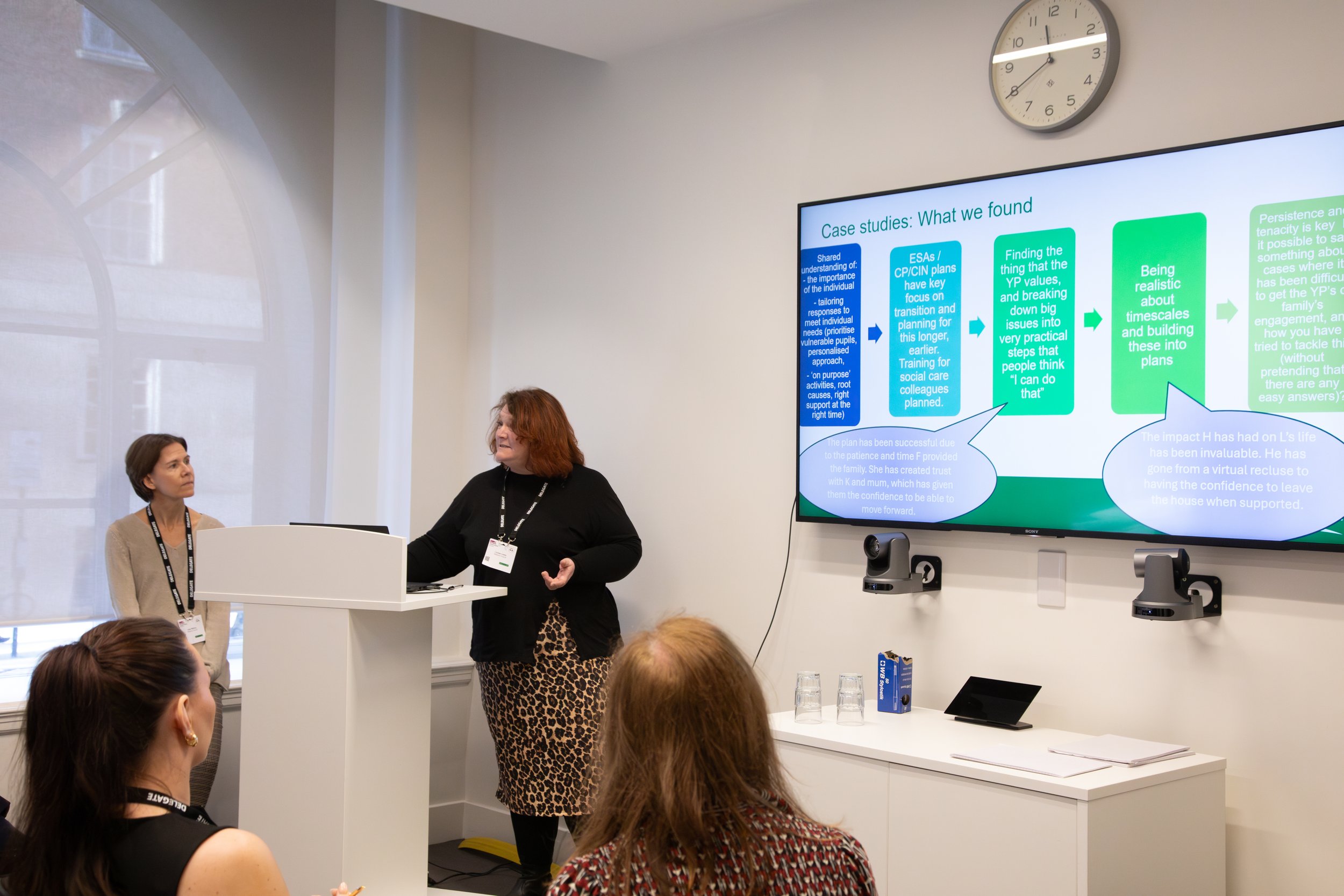Taking a "granular approach" to understanding and addressing vulnerability
Read through any government policy document, local area strategy or school website, and chances are that you will not have to read for too long before you find a commitment to supporting “the most vulnerable”. What, however, does “vulnerable” actually mean in these contexts? Do all practitioners working with children and families mean the same thing when talking about “the most vulnerable”? And what if the different approaches to vulnerability can actually compound, rather than alleviate, the negative experiences of and risks to children and families?
These are some of the questions that four local areas – Coventry, Rochdale, Wakefield and Wiltshire – have grappled with as part of a new programme designed to explore and test new approaches to understanding and addressing vulnerability. Through the LocalEd 2025 programme, sponsored by the Association of Education Committees Trust, I have worked with leaders from these four local areas as they have sought to make the experiences and causes of vulnerability more visible to schools and practitioners, and to explore approaches and practices that reduce young people’s vulnerability.
These four areas started with a focus on “vulnerability”, not in the traditional sense of labels, but in a more pragmatic and holistic sense of understanding the needs of individual young people as a first step to addressing risks and barriers those young people may be facing. The key insight was that young people we might consider “vulnerable” are not all vulnerable in the same ways, and thus reducing the vulnerability of one young person requires the adults working with them to understand, make visible and work together to address their needs.
Along the way, they have developed a way of working that we have called the granular approach. This approach involves identifying an area of practice and being willing to “hold up the mirror” by considering whether their experiences match the lofty ambitions and commitments to supporting “the most vulnerable”. This can be done in areas of practice like how schools and services respond to severe absence, transitions, alternative provision and permanent exclusions. It involves focus on a small number of individual cases – of individual children, their families and other adults working with them – and seeking to make a positive difference both in those individual cases in real time, but also drawing out learning to inform practice at a whole school, service or local area level.
Colleagues in Rochdale and Wakefield started by focusing on severe absence as an indicator of vulnerability, whereas colleagues from Wiltshire focused on “transitions” as a factor that can exacerbate vulnerability. Coventry colleagues worked with school and community leaders in one locality to develop a menu of support, including the roles of a “School Link Worker” and a “Transitions Worker”. The influence of Shaun Brown from The Difference, who delivered a brilliant workshop for Pilot 1 leads on “the continuum of exclusion” and the need to focus on influencing day-to-day practice and interactions, was hugely influential in shaping the work of the Pilot 1 teams at a formative stage.
All four areas then went through iterative cycles of identifying a small number of individual young people, using these cases to improve support for these young people and their families in real time, as well as “holding the mirror up” to the wider system and identifying lessons and practical changes that are needed. The impact is potentially transformative in those local areas.
Rochdale have transformed their approach to absence and the work of their Education Welfare Service, and started to apply the granular approach to permanent exclusions. The work has also inspired similar approaches across Greater Manchester (in work on absence led by the Children’s Commissioner) and in Birmingham.
Wakefield have embedded a focus on severely absent pupils not known to wider services in the work of their Education Welfare Service, meaning all schools are having termly conversations about those pupils to ensure they do not become invisible to the wider system. They have also pioneered the role of a youth “mentor”, which is now a permanent feature of Wakefield’s work and their pioneering approach to their Specialist AP Taskforce. They have also used the granular approach to work with academy trust CEOs to scrutinise permanent exclusions.
Wiltshire have used the learning from their case studies in Year 6-7 and Year 9-10 transitions in the induction, training and practice of new and existing services working with schools and families. They have also developed a “transitions collaborative” approach for working with clusters of primary and secondary schools to test and develop practice around Year 6-7 transition through an action learning approach. This is a scalable and repeatable approach that has the scope to influence school practice across the county.
Coventry have gathered vital evidence that has demonstrated to schools the value of having a “School Link Worker” who can build rapport with young people and their families, build trust and relationships with schools, connect families to wider community services, and ultimately ensure young people remain engaged and thriving in their education. There is strong interest from a number of schools in Coventry to develop and maintain their own versions of this approach.
All four Pilot 1 areas have shown that the granular approach can demystify “vulnerability” and give enable practitioners by encouraging them to focus on building a shared understanding of a young person and their family, what they value and what makes them feel unsafe, and taking small practical steps that can make a huge difference.
At the end of January (2025), we held a conference in London to celebrate the work of the four local areas that have focused on “vulnerability”, as well as five local areas that tested other aspects of locality-based approaches to education. The presentations given by each local area can be read here. The two-year pilot programme, where we have supported the four local areas, has now come to an end. The granular approach, however, continues to influence and shape the work in these four areas and beyond.




